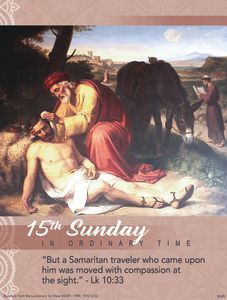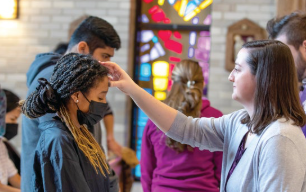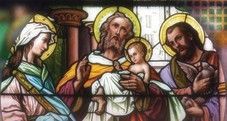Beloved Family:
Here is how best to play “the victim.” Once again, I admit to somewhat purposely trying to catch the reader’s attention. What is my objective? It relates to the gospel for this Fifteenth Sunday in Ordinary Time, fairly universally known as “The Sunday of the Good Samaritan.” Two sentences in what I refer to as the “Introduction to the Mass” provided in Magnificat magazine caught my attention: “Interpretations of today’s Gospel parable tend to focus on the Samaritan, whose example of generous service we are to emulate. But we can also see ourselves in the first place as the one lying beaten and half-dead” (underlining added).
We hear fairly often these days about a victim mentality. Healthline.com offers the following indicators within a person: The victim mentality rests on three key beliefs:
1. Bad things happen and will keep happening.
2. Other people or circumstances are to blame.
3. Any efforts to create change will fail, so there’s no point in trying.
As those called to imitate the compassion of Jesus, we certainly do well to acknowledge that so many humans are subject to bad things for which there is no easy explanation. Tragedies can often come in a repeated sequence to an individual or a family. Of course, we ought not be dismissive and adopt an attitude along the lines: “That’s just life; deal with it.”
However, because of Jesus Christ, we are not left without agency— that is, without the grace to be more than passive beings caught in a merciless web of fate. Are we ready to let God Himself teach us how to play the victim to His efforts to “dress our wounds” and attend to our brokenness, receiving his love that is like a healing ointment? One training to be a medical professional has to observe a lot of technique from other medical professionals. Our Divine teacher wants to heal us so that we can, in turn become healers as his disciples. We can watch Him and learn from Him.
Sunday’s second reading, drawn from the Letter of Saint Paul to the Colossians, reminds us: “Christ Jesus is the image of the invisible, the firstborn of all creation.” Saint Paul elsewhere states: “For you know the gracious act of our Lord Jesus Christ, that for your sake he became poor although he was rich, that by his poverty you might become rich” (2 Corinthians 8:9).
This takes me back to a canvas I saw in a museum in Paris, which is likely not one of the better-known museums in that city dripping with art. The museum is Le Petit Palais, and the painting is The Good Samaritan, by the French artist Aimé-Nicolas Morot. Without permission, I cannot print it here. It is, to me, quite worth a search on the internet. What is so striking is that the figure tending the victim looks almost as vulnerable as the figure he has hoisted up onto his donkey. Is this not a beautiful icon of our Savior?
Perhaps, the flesh of the body of Jesus is a veil covering His divinity, but the depth to which our Lord made Himself vulnerable for our sake is no illusion. Do I—do we— meditate sufficiently on the truth of Faith: He became like us in ALL things but sin? This week, I suggest, is an excellent opportunity to do just that.
Let His Peace be with you,
Fr. Stephen













